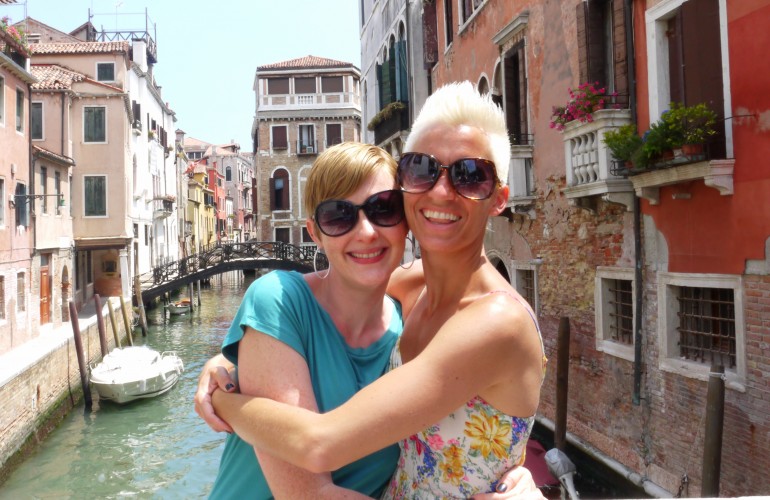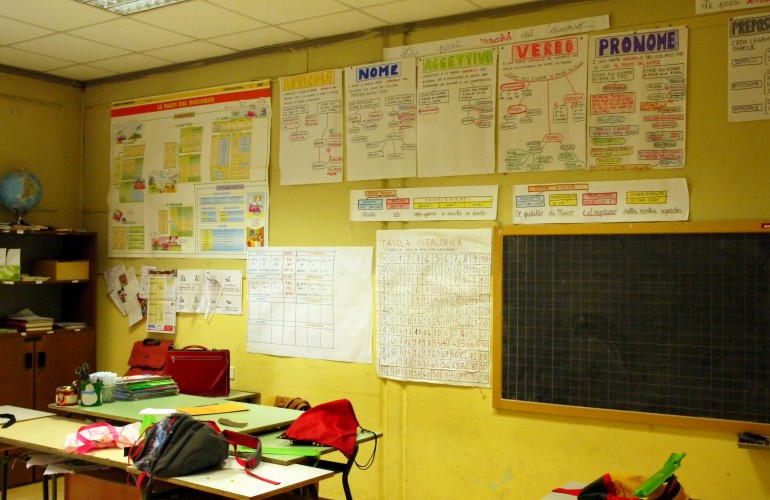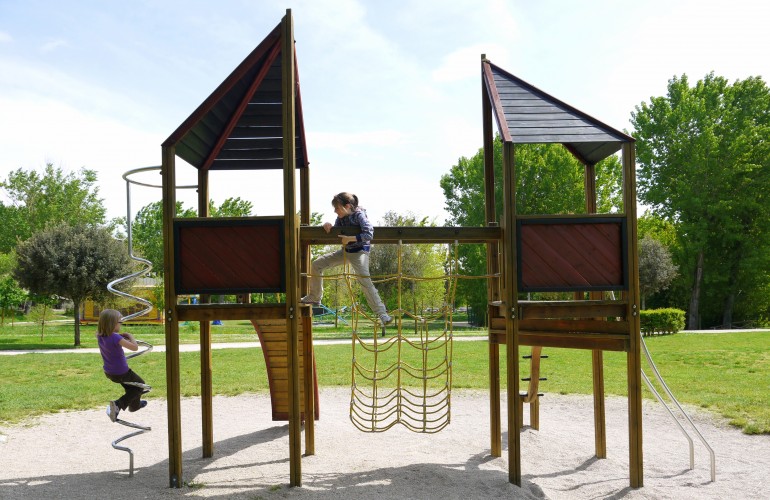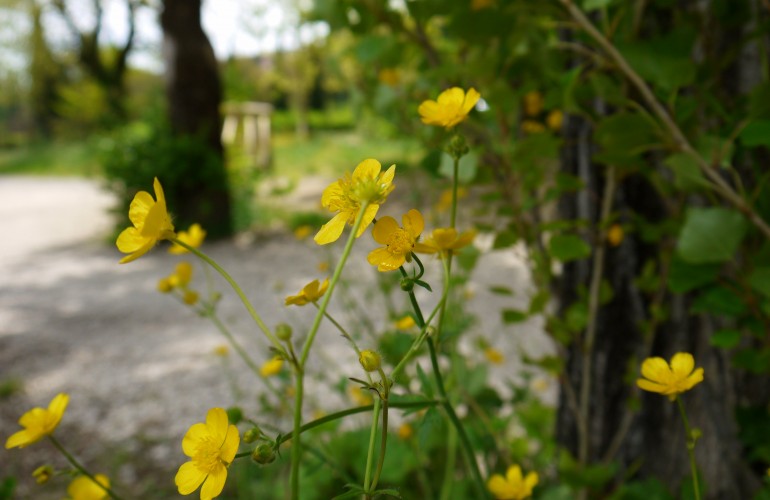[Photo snapped at the running trail near our house]
I used to be a psychology major. Did you know that? I originally went into elementary education, but two weeks into my first education class, I knew I was headed down the wrong career path. (Out of all the homework assignments I completed at college, decorating a poster to explain number sets to first-graders was the only one that made me weep with frustration.) I then switched to psychology, much to the apathy of my department advisor. “I want to become a counselor who can help children and families out of abusive situations!” I announced with all the optimism of one about half a step into her own recovery. “Mm,” said my advisor, glancing at her watch. She clearly knew something about my future in psychology that I didn’t learn for myself until one day halfway through my junior year when I was tutoring a group of freshmen in creative writing and thinking that really, the school didn’t even need to pay me for it; I just loved working with the English language that much. In fact, I’d choose to read all thousand-plus pages of the Chicago Manual of Style over a five-page psychology case study any day.
“Wow, I’m so surprised you’re switching your major to English!” said no one. My parents kindly refrained from mentioning that every career test I’d taken throughout high school had told me I was meant for writing. My future husband, best friends, and liberal arts professors all took an it’s-about-time stance, and that was that. But what I want to tell you about today took place before the switch, back when I was still immersed in psychology coursework.
During class one afternoon, my professor handed out a questionnaire meant to help us discover how much control we felt we had over our own lives. I can’t remember the official terminology, but it was designed to evaluate in ten minutes or less whether we were fatalists or… uh, whatever the opposite of that would be. Controlists? (Psychologist friends, help!) That damn questionnaire ranks as second most overwhelming homework assignment of my college career. I could not figure out how to answer the simple multiple-choice, no-wrong-answer questions.
I believe that my success in life is:
A) Dependent on hard work and perseverance
B) Up to chance
When something bad happens to me, I:
A) Believe that I caused it by something I did
B) Believe other people or circumstances out of my control caused it
What I needed was an “All of the above” option because, as it turned out, I believed simultaneously that I was powerless to change my life and that every negative aspect of my life was my fault. Lord o’ mercy.
Discovering this about myself did absolutely nothing to fix it. Religious dysfunction runs deep, and my theology had taught me that even though God was Supreme Micromanager of the Universe, I could inadvertently sway his decisions by being too [fill-in-the-blank] or not [fill-in-the-blank] enough. The good in my life—and there was much good—made me feel like I was getting away with something, that some glitch in the divine system was giving me an edge I didn’t deserve. Meanwhile, the difficult parts of my life were proof of my own personal failure. The result was that I strove for perfection without ever seeing the correlation between hard work and good results. I had absolutely no concept of goal-setting.
Truth be told, I still didn’t have a concept of it last year when I started training for a marathon—arguably one of the biggest goals a couch potato like me could set. I find it notable that I signed up for the marathon to see if I could surprise myself; I put no real trust in my training program or the slow and steady progress I made throughout those five months. It all seemed up to fate until the very end, when I sank my jellified bones onto a bench in the finishers’ zone and considered what I had just done. What I had done. With willpower and time and action verbs and a very conscious determination to try, I had succeeded at a challenge. Fatalism could go stuff it.

I didn’t realize how profoundly the marathon had changed my thinking though until a couple of weeks ago. Sophie had brought home a poem to memorize for school, and I kept hearing snatches of it as I walked past her room. She even tried practicing it while she brushed her teeth. I was impressed to see a first-grader taking that much initiative, and it wasn’t a surprise the next day to hear she had gotten the highest possible grade on her recitation. “Great job!” I told her. “You worked so hard to memorize that poem, and it paid off!”
Perhaps that is a very normal thing for a parent to say, but the words felt shiny and exotic slipping over my tongue. Never before had I linked cause and effect so confidently, and it wasn’t limited to my daughter’s grades either. I realized that I was holding several challenging areas of life in my hands, weighing them and strategizing instead of just brooding over them from afar. For the first time I can remember, I felt like I had a say in the outcomes of my life. Not the full say, and probably not the final one either, but the power to chart new directions nonetheless.
I’m afraid that if I write any more, this post will degenerate into a vaguely formulaic, click-bait-style article (“How Running a Marathon Turned Me Into an Optimist!”), and the last thing I want to treat as trivial is my journey out of fundamentalism. I want you to know though that while claiming power over one’s own life may sound like an Oprah-ism, it’s really the rush of wind changing directions. It’s the glorious muck on your hands as you shape goals into being. It’s the crumple of a psychology questionnaire hitting the wastebasket because you no longer need multiple-choice questions to define (or upend) you. It’s the rhythm of running shoes on pavement, steady with the hope that you’re actually, finally going somewhere.




















